Anto, with Beijing Nowva Energy Technology in Semarang, Indonesia
Anto is a cheerful man born into a middle-class family in Indonesia. His family led a poor life after his father's death in Anto's childhood. He had to give up his dream of studying at university, and became a driver at PT Arkof - Aroma Kopikrim Indonesia, the producer of Kopi luwak under the brand Luwak White Koffie. Kopi Luwak coffee is regarded as a national treasure by Indonesians.
The plant where Anto works is located in Semarang, a city on the north coast of the Island of Java. Legend has it that Zheng He, the fleet admiral during China's Ming Dynasty (1368-1644), landed here when traversing the South China Sea. The city later got its name in commemoration of the event.
Taking pride in his job, Anto is always telling people numerous stories about his plant. However, as Java is warm and humid, the piles of coffee grounds in surrounding areas of the plant smell terrible after exposure to wind and sunshine, a bother not only to Anto but also to workers and nearby residents.
Things changed when Beijing Nowva Energy Technology, encouraged by China's Belt and Road initiative, committed to build multi-process circulating fluidized-bed boilers, co-developed by the company and Tsinghua University, in Indonesia. Anto's company had invested in the two CFB boilers, which consume waste coffee grounds, to save waste disposal expenses and reduce the coffee plant's coal consumption.
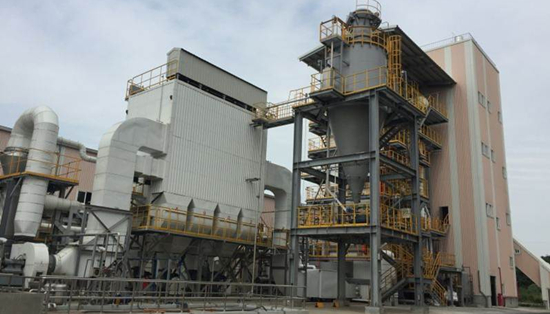
A photo taken in September 2015 shows Nowva Energy's boiler used to process coffee grounds.
Wishing to see the boilers put into operation as soon as possible, Anto volunteered to be a full-time driver for Nowva's engineers. No matter how late the Chinese engineers worked into the night, he would wait for them and drive them back to their homes before returning to his own. Anto could speak English, and helped the engineers solve many problems in work and life. Even on holidays such as New Year's Day and Spring Festival he would stay with the engineers, working late. Eventually, they completed the construction of the boilers ahead of schedule and with excellent quality.
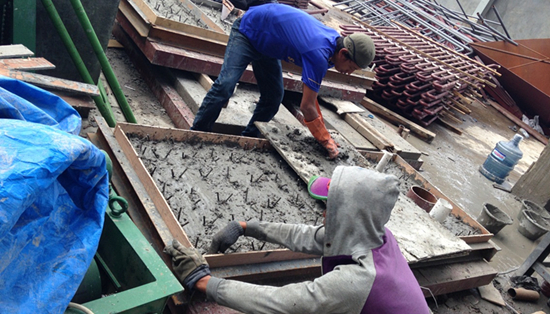
A photo taken in March 2015 shows Indonesian workers filling refractory material in the shield plate of the boiler.
After the first two boilers were delivered, the Indonesian customer ordered two more. Currently, the four boilers are capable of processing more than 30,000 tons of coffee grounds annually, saving 15,000 tons of coal and cutting emissions of 38,000 tons of carbon dioxide, 3.75 million tons of sulfur dioxide and a million tons of nitrogen oxide.
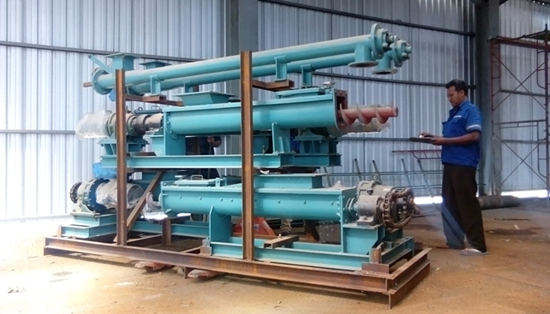
A February 2015 photo shows an Indonesian worker installing the feeder system for the coffee grounds.
The head of the coffee plant said: "It's amazing that the Chinese company's technology has helped us cut costs and reduce environmental pollution as well!"
There were about 20 Indonesian workers on the construction site, all happy with their jobs which brought them lucrative incomes. In their spare time, they served as guides and helped Chinese engineers better understand local customs and culture. Indonesia is a religious nation, and more than 80 percent of its people are Muslims. Showing full respect to local customs, Nowva set up a prayer room next to the control room, which moved the Indonesian workers.
After the project was completed, Anto got a pay raise. He was happy because his monthly income of 1,500 yuan allowed his children to get better education.
The end of the construction project was not the end of friendship. The Chinese engineers and their Indonesian partners often communicate with each other via social networking app WeChat.
"My biggest wish is to visit Beijing to see Tian'anmen, Bird's Nest and the Water Cube," said Anto. "More important, I want to visit my friends at Nowva."

 Facebook
Facebook WeiXin
WeiXin CONTACT US
CONTACT US






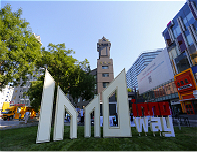



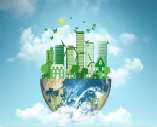 Tsinghua Holdings works hard for better ecological environment
Tsinghua Holdings works hard for better ecological environment